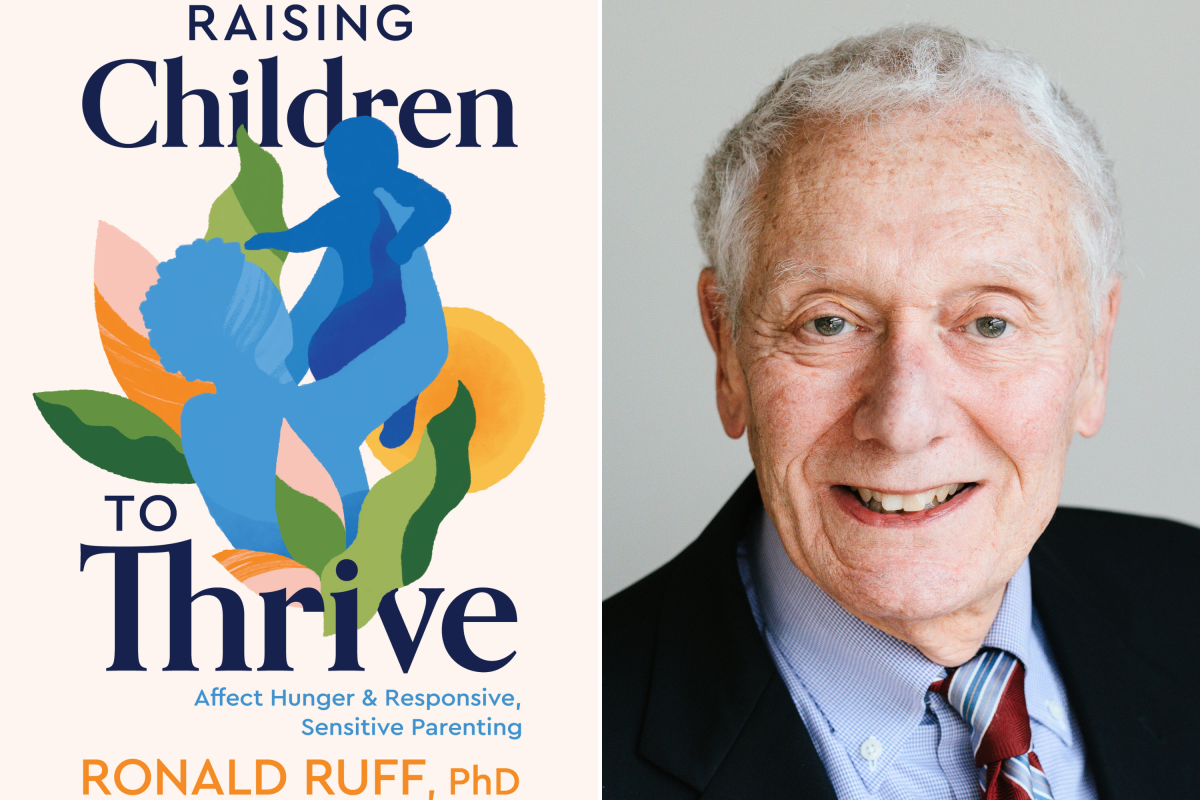One day while working at my outpatient private practice in Homewood, Illinois, I received a call from a high school counselor. She asked if I could see—right away—a senior and his parents in her waiting room.
She had just talked with the boy, Peter, who had told her he wanted to kill himself.
I saw the family that same afternoon.
First, I spoke with Peter. Peter was talkative. "My parents want me to be a doctor," he said as soon as he sat down.
"That's all they talk about. They push me to take all AP [advanced placement] classes, especially in science. They're both doctors. They said they bought our house in this school district because it's highly rated. I told them I'm miserable because I don't like science and don't want to be a doctor."
"What are your interests?" I asked.
"I really like computers. Mostly computer animation and photography."
"That sounds really interesting." I studied Peter a moment. "Do you have a plan to harm yourself?"
"Yes, I do. I just can't take the pressure anymore."
I called Peter's parents in to join us and shared with them that their son was actively suicidal and should be referred to a psychiatric hospital for evaluation and treatment.
"That's not possible," the father replied. "Why not?" I raised an eyebrow. "Peter has final exams tomorrow."
Peter's father was so focused on his own selfish desires for his son's future that he downplayed the severity of Peter's mental state and refused to consider hospitalization.
Even though he was a healthcare professional himself, he was insensitive to his son's welfare and insistent that Peter present for finals the next day at all costs, even though he had a suicide plan.
When parents concentrate on their own desires and intentions, they can completely misread their children's cues and become blind to their needs and wellbeing.
We generally parent as we were parented. Parents who are physically absent or emotionally unavailable are merely re-creating the patterns and lack of maternal caregiving they experienced as children.

The maternal attachment bond must be established at birth. There's no time to waste in forming this vital connection, which is essential to ensure a foundation for healthy emotional, social, and cognitive development.
The science of parenting indicates that development is a socially interactive process. A child's environment, both before and soon after birth, provides experiences that can modify genes and determine how and when they are expressed.
Put another way, a child's life course and developmental stages aren't solely influenced by the effects of genetics. Environmental factors can mitigate and override the powerful influence of genes on a child's developmental course.
An example of this environmental influence can be found in the development of executive function skills.
Genetically speaking, healthy children are born with the ability to control impulses, focus attention, and retain information.
The quality of caregiving and experiences during the first three years of life will provide the structure and foundation for the degree to which such skills will develop.
In his formulation of attachment theory, Bowlby defined responsive, sensitive parenting as follows: "Responsive, sensitive parenting refers to family interactions in which parents are aware of their child's emotional and physical needs and respond appropriately and consistently. Sensitive parents are 'in tune' with their children."
Responsive, sensitive parenting is the best-practice model for a child's mother, father, and other significant caregivers. It provides the quintessential care necessary to satiate the infant's innate hunger for affect, nurturance, love, security, warmth, and safety.
In fact, affective neuroscience confirms that both infants' and mothers' brains are wired for such affective interrelatedness, responsiveness, and human-to-human bonding.
***
How to Meet Your Children's Needs
The central feature associated with responsive, sensitive parenting is serve and return. Such interactions shape brain architecture.
When an infant or young child babbles, gestures, or cries and an adult responds appropriately with eye contact, words, or a hug, neural connections are built and strengthened in the child's brain that support the development of communication and social skills.
Much like a lively tennis match, this back-and-forth is both fun and capacity building. When caregivers are sensitive and responsive to a young child's signals and needs, they provide an environment rich in serve-and-return experiences.
Because responsive relationships are both expected and essential, their absence is a serious threat to a child's development and wellbeing.
Healthy brain architecture depends on a sturdy foundation built with appropriate input from a child's senses and stable, responsive relationships with caring adults.
If an adult's responses to a child are unreliable, inappropriate, or simply absent, the developing architecture of the brain may be disrupted, and subsequent physical, mental, and emotional health may be impaired.
The persistent absence of serve-and-return interaction acts as a "double whammy" for healthy development: not only does the brain not receive the positive stimulation it needs, but the body's stress response is activated, flooding the developing brain with potentially harmful stress hormones.
Serve-and-return interactions make everyday moments fun and become second nature with practice.
By taking small moments during the day to serve and return, we build up the foundation for children's lifelong learning, behavior, and health—and their skills for facing life's challenges.
Child-adult relationships that are responsive and attentive—with lots of back-and-forth interactions—build a strong foundation in a child's brain for all future learning and development. Serve and return takes two to play!
***
Keep these primary attributes of responsive, sensitive parenting in mind:
• It's a genuine I-Thou relationship.
• It's an ongoing interactive, collaborative, and sharing process.
• It requires acceptance of your child as a unique person.
• It's a process of emotional interactions.
• It involves being intuitive and attuned to your child's immediate needs.
• It requires communication.
• It requires patience.
• It requires your physical and emotional availability.
• It requires your compassion and empathy.
• It requires unconditional positive regard of your child's unique mind.
• It requires imagination.
Responsive, sensitive parenting should be a birthright. Serve-and-return interactions, especially in infancy and the first three years of life, will shape brain development for life.
The two ends of the spectrum of early child development—and consequent later-life adult functioning—are thrive and failure to thrive. These two levels of psychological health are the result of two very different parenting styles and environments.
I have assessed and treated thousands of severely neglected, abused, and deprived children, adolescents, and adults. I've seen and felt the effects of a lack of parental attachment and the consistent, ongoing, sensitive, and responsive attention, warmth, nurturance, and loving interactions necessary for healthy development.

Such children are, in many cases, easily distinguished as different. Not unlike a malnourished, frail child, such children appear empty, lost, and emotionally hungry.
They impress as sad and lonely. The lights in their eyes are dim, as are the flames in their souls—if they've been ignited at all. They lack the features and behaviors of a happy child: a bright-eyed countenance, a bounce in their step, laughter, enthusiasm, energy.
The joie de vivre, spontaneity, is wholly absent. They're hungry for affection, emotional interaction with parents, attention, nurturance, and love.
These severely neglected children will never fully thrive. They suffer extreme psychic pain and experience a variety of learning problems, cognitive delays, social and behavioral difficulties, physical problems, mental health issues—even stunted brain development.
The impact of toxic stress and the absence of responsive, sensitive parenting may result in permanent impairment.
Despite the fact that neglect is by far the most frequent form of child abuse, it is given less public attention than other types of abuse and receives a lower proportion of mental health services allocation.
Mind-Mindedness
As a concept in developmental psychology, mind-mindedness refers to a caregiver's tendency to view their child as an individual with a mind, rather than merely an entity with needs that must be satisfied.
Mind-mindedness involves adopting an intentional stance toward another person.
Proposed by American philosopher Daniel C. Dennett, the intentional stance is a strategy for interpreting and predicting behavior that views organisms as rational beings acting in a reasonable manner according to their beliefs and desires (i.e. their intentions).
Mind-mindedness differs greatly from parenting attitudes of past generations. The old-fashioned mantra, "Do what I say, not what I do," has been scientifically discredited and has been supplanted by a new responsive sensitivity to the uniqueness, idiosyncrasies, immediacies, and individuality of the wants and needs of our children.
Serve and return, the ongoing caregiver-child interaction, is paramount because it promotes attachment and emotional growth—for child and parent alike.
This ongoing social and physical interaction, both verbal and nonverbal, also facilitates normal psychosocial, emotional, cognitive, and brain development.
***
A parent who engages their child with responsive, sensitive parenting will greatly improve their child's capacity to thrive as a socially, emotionally, and overall, psychologically healthy child— and later, adult.
This occurs for two primary reasons: Responsive, sensitive parenting is the best practice model to satiate your child's affect hunger.
Responsive, sensitive parenting is the best practice model to ensure that your child internalizes the essential psychological resources of empathy, develops a capacity to play, develops a conscience, and receives significant brain stimulation.
Dr. Ronald Ruff, Ph.D. is a psychologist. He began working with children and parents in 1969, started his private practice in 1974, and continued until 2017. His new book Raising Children to Thrive: A Workbook and Guide for Responsive, Sensitive Parenting is an evidence-based guide for parents. It publishes June 11, 2024.
This article is an abridged extract from Raising Children to Thrive.
All views expressed are the author's own.
Do you have a unique experience or personal story to share? See our Reader Submissions Guide and then email the My Turn team at myturn@newsweek.com.
Uncommon Knowledge
Newsweek is committed to challenging conventional wisdom and finding connections in the search for common ground.
Newsweek is committed to challenging conventional wisdom and finding connections in the search for common ground.
About the writer
Dr. Ronald Ruff, Ph.D. is a psychologist. He began working with children and parents in 1969, started his private practice ... Read more
To read how Newsweek uses AI as a newsroom tool, Click here.








